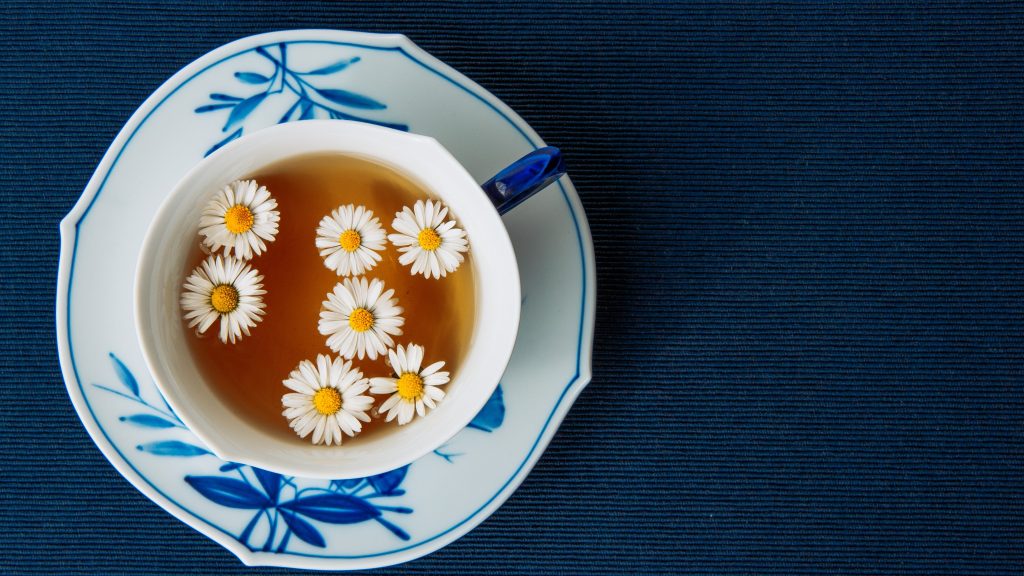Herbal Sleep Remedies That Actually Work: Exploring Plant-Based Sleep Aids and Alternatives

We all know the frustration of lying awake at night; the quiet ticking of the clock, the thoughts that won’t switch off, and the longing for deep, uninterrupted rest!
When sleeplessness stretches over days or weeks, many people begin to look for support that feels gentler than prescription pills, something that helps the body find its rhythm again without dependency or harsh side effects.
At Quadra Wellness here in Vancouver, we often meet clients who say, “I’ve tried herbal teas and supplements, but I’m not sure what really works.” This article is for them and for anyone curious about how certain plant-based remedies can genuinely support better sleep when used thoughtfully and safely.
Why Are More People Turning Toward Herbal Sleep Remedies?
Across workplaces, households, and screens glowing late into the night, sleep troubles are everywhere.
While prescription sleep medications can sometimes offer short-term relief, they often don’t address the underlying causes of disrupted sleep; things like stress, irregular routines, or an over-activated nervous system.
That’s why many people explore herbal and nutrient-based supports that work with the body’s internal rhythms rather than against them.
These remedies aren’t about forcing sleep. Instead, they gently calm the system, reduce nighttime arousal, and help create the internal conditions where rest can naturally return.
How Herbal Sleep Aids Support Rest?
Herbal sleep supports work in subtle but measurable ways. Many of them influence the same neurotransmitters involved in relaxation and the onset of sleep, particularly GABA (gamma-aminobutyric acid), which quiets neural activity and signals to the brain that it’s safe to rest.
Others, such as certain roots or flowers, help regulate cortisol (the stress hormone) or support serotonin and melatonin production, both key players in the sleep-wake cycle.
The goal isn’t sedation. It’s balance; easing the transition between wakefulness and rest while maintaining the body’s natural rhythm.
Science-Backed Herbal Sleep Remedies That Actually Help
Below are some of the most researched and well-tolerated options that people in our practice often ask about.
- Valerian Root – The Classic Bedtime Herb
For centuries, valerian root has been used to shorten the time it takes to fall asleep and to improve sleep quality. Research shows that compounds within the root interact with GABA receptors, promoting calm without morning grogginess.
A client once told us she began drinking a valerian infusion before bed after reducing caffeine and noticed a gradual shift, not an instant knockout, but a gentle sense of winding down earlier each night. That slow, steady progress is exactly what sustainable sleep recovery looks like.
Tip: Start with a moderate dose and allow at least one to two weeks of consistent use to notice benefits.
- Passionflower – Calming the Racing Mind
If your biggest struggle is an overactive mind at bedtime, passionflower may help. It appears to quiet mental “noise” by increasing GABA levels, which reduces nighttime anxiety.
Clients who describe lying in bed “mentally drafting tomorrow’s emails” often find this herb complements mindfulness or breathing practices well. It doesn’t make you drowsy, it simply turns down the internal volume so your body can take over.
- Ashwagandha – The Stress Regulator
Ashwagandha is an adaptogenic root, meaning it helps the body adapt to physical and emotional stress. Studies show that it can lower cortisol levels and improve both sleep onset and overall sleep quality, particularly for people who describe feeling “tired but wired.”
It’s not a sedative, it’s more like a nervous-system coach, gently teaching the body how to shift from high alert to rest-ready.
- Chamomile – The Gentle Companion
Chamomile contains a compound called apigenin, which binds to certain receptors in the brain that encourage relaxation and reduce anxiety. It’s mild but reliable, and perfect for those evenings when you simply want to signal to your body that the day is ending.
Pairing chamomile tea with a consistent wind-down ritual; dim lights, quiet music, or journaling can enhance its effects. The ritual itself becomes part of the cue for rest.
- Lavender – The Aroma of Calm
Lavender is well known for its calming scent, but research supports its use beyond aroma. Both inhaled and oral forms have been shown to reduce anxiety and improve sleep quality.
Try a few drops of lavender essential oil on your pillow or a brief inhalation practice before bed, breathe slowly and let the association between the scent and relaxation strengthen over time.

Nutrient-Based Support That Complements Herbal Remedies
In addition to herbs, certain natural sleep aids play a key role in promoting sleep:
- Magnesium helps regulate the nervous system and muscle relaxation.
- Glycine lowers body temperature slightly, signaling readiness for sleep.
- L-theanine, found in green tea, promotes calm focus without sedation.
- Tart cherry extract contains natural melatonin and may improve sleep duration.
Used together with herbal remedies and good sleep habits, these can reinforce healthy rhythms without overwhelming the system.
How Herbal Supports Differ from Prescription Sleep Aids?
Prescription sleep aids often act by suppressing the central nervous system, leading to immediate but short-lived sedation.
Herbal and nutrient-based supports instead work gradually, aiming to retrain your body’s sleep mechanisms.
They don’t override your natural rhythms, they nudge them back into alignment. There’s no dependency, no rebound insomnia, and minimal side effects when used properly.
But patience is key. Most herbal approaches take a few weeks of consistent use before you feel meaningful results and that’s a good thing. It means your body is genuinely rebalancing, not just shutting down.
Choosing What Works Best for You
There isn’t one perfect herb or supplement that works for everyone. The right choice depends on what’s driving your sleeplessness:
| Common Concern | Gentle Herbal Support | Why It Helps |
| Racing thoughts, anxiety | Passionflower, chamomile | Quiet mental chatter, ease nighttime tension |
| Difficulty falling asleep | Valerian root | Reduces time to sleep onset |
| Stress or burnout | Ashwagandha, lavender | Regulates cortisol, promotes calm |
| Early waking | Tart cherry, magnesium | Supports melatonin and relaxation |
Start with one approach at a time and track changes in a sleep diary. This mindful awareness helps identify patterns and gives you a clear sense of progress.
Combining Herbal Support with CBT-I and Healthy Sleep Practices
At Quadra Wellness, we’ve seen that herbal support works best when it’s integrated with CBT-I (Cognitive Behavioral Therapy for Insomnia), a structured, evidence-based approach that addresses the behavioral and cognitive patterns that keep insomnia going.
That means pairing herbs with consistent habits like:
- Keeping a steady sleep-wake schedule
- Reducing late-night light exposure
- Practicing relaxation techniques like mindful breathing or progressive muscle relaxation
- Getting out of bed if you’ve been awake for more than 20 minutes
This combination helps retrain your body and mind to associate bedtime with safety and rest, a core principle of CBT-I.
A Gentle Perspective to End the Day
Finding your way back to restorative sleep isn’t about chasing perfection or finding the newest “miracle” remedy. It’s about creating the right internal and external conditions for your body’s own sleep systems to work again.
As one client recently shared, “Once I stopped fighting sleep and started supporting it, little by little, my nights felt softer.”
Herbal sleep support can play a quiet but meaningful role in that process. They remind us that the body already knows how to rest; it sometimes just needs the right guidance and patience to remember how.
Ready to transform your relationship with sleep?
Learn more about our science-backed 6-week “Gently to Sleep” program and take the first step toward restful nights and energized days. Contact us to schedule a free sleep consultation.
